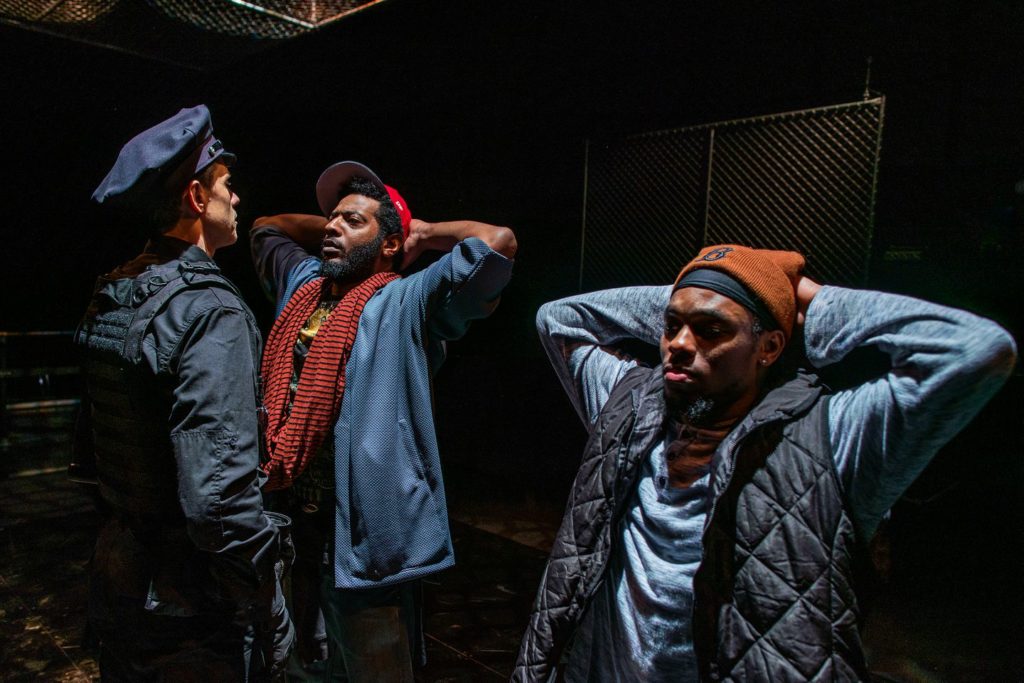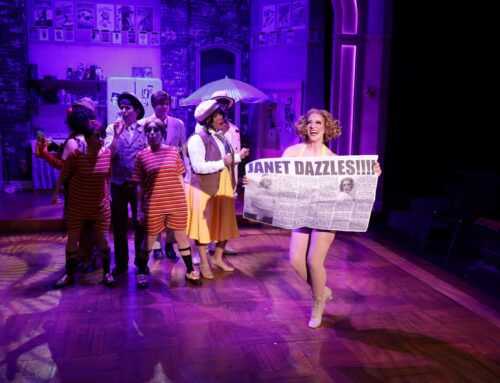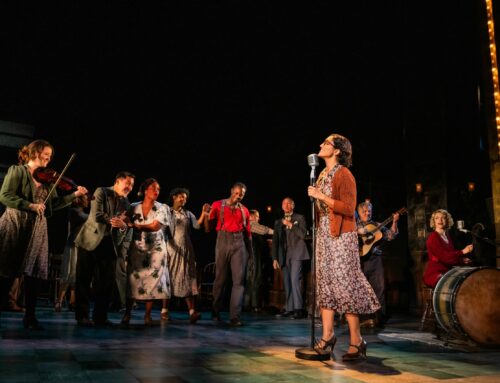PASS OVER by Antoinette Nwandu co-presented by SpeakEasy Stage and the Front Porch Arts Collective is a potent 90 minutes that encapsulates then unleashes a penetrating take on the black experience in America. Stylistically and thematically, PASS OVER takes a cue from Samuel Beckett by way of the old testament. Here, two black men Moses and his cohort Kitch talk incessantly of their intention to, and I quote: “rise up” from “deez streets uh violence/streets uh anger” and “pass ovuh” … to “dat promised land.” It’s clear within the play’s confines they are going nowhere, but the absurdity of their attempts are rooted in a cruel reality, rather than an existential void. The setting ricochets from their ghetto street corner, back to the plantation, and then Egypt; they may not be “Waiting for Godot,” but this is nonetheless a tragicomedy of inertia and entrapment in one act. It is played with great humanity, humor, and rage by Kadahj Bennett as Moses, and Hubens “Bobby” Cius as Kitch. In tandem, they brilliantly navigate the concentrated rhythms of this rough and rich dialogue, riffing on their longing for escape.
Lewis D. Wheeler appears as two different oppressive white men: “Mister” (whose surname is “Master”) who stumbles onto their block with a picnic basket and a straw hat on his way to his mother’s house. Wheeler captures the patronizing creepiness, discomfort and fear white people feel when confronted with the fallout of their ill-gotten gains, and sensing that power is threatening to shift. It’s no surprise “Mister” is uneasy and having a less than beautiful day in this neighborhood. Later, Wheeler enters as “Ossifer” –a policeman or “po-po”–who threatens the duo with violence when he notices them trying to “pass.” Every incident of police brutality from Rodney King to Freddie Gray flashes before our eyes with its attendant loop of powerlessness in the form of homelessness, hunger, joblessness, incarceration, and death.
There are layers to unpack, all of them condensed into an explosive script tightly directed by Monica White Ndounou. The audience surrounds the action on all sides, with Moses and Kitch additionally encased by chain link from above. They are effectively hemmed in on all sides, the lighting design by Kathy A. Perkins cloaking them in the deep shadows of oppression. In the harsh glare of these circumstances, their “caviar wishes and champagne dreams” (the American Dream courtesy of Robin Leach) are seen to mask a deeper yearning for freedom, fulfillment, and home.
PASS OVER rides the currents of anger and frustration around the lingering racism rotting at the core of American culture. For now, Moses and Kitch have at least laid claim to the exclusive use of the n-word. It’s off limits to Mister but liberally used here by Moses and Kitch, furiously appropriated, re-branded, and re-weaponized to defeat its original use as a cudgel against them. The word is a sign of the bitter ties that bind the two men, as well as an assertion of power, the word a small victory, language and identity reclaimed.
As I watched, I was reminded of something Representative Ayanna Pressley was recently reported to have said, “It isn’t identity politics that is ‘ruining this country. It is hate and white supremacy that is codified through legislation.’ ” Nwandu’s play widens that focus and draws us skillfully and dramatically into a painful conversation that reverberates through history and continues after the production ends. There are no bows or applause; when it is over, people of color are invited to remain, and white ticket-holders are respectfully shown the way out.
Must see: PASS OVER at the BCA CALDERWOOD PAVILION extended through February 2!







Leave A Comment
You must be logged in to post a comment.